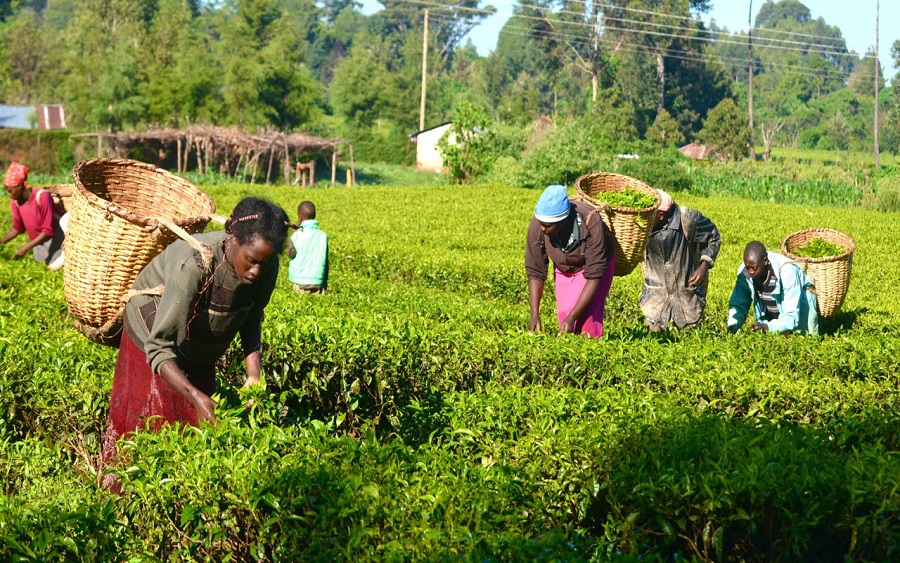Two of the essential factors necessary for the acceleration of agricultural development are information and knowledge which can guarantee increased production coupled with efficient marketing and distribution practices. To this end, mobile technologies have proven their capacity to assist farmers in the overall farming activities ranging from production to sales and beyond. Studies in countries like Sri Lanka have found that farmers were able to considerably improve their incomes using simple mobile phone applications where 40 per cent of their crop loss was avoided with timely interventions made possible by using the applications.
For a long time, Kenya represented one of the world’s most dynamic agricultural mobile applications development environments with enormous possibilities for innovative and new applications with a strong software development system which has led technology giants to invest their resources in improving and further diversifying the potential of this dynamic mobile app scene. But with over 180 million mobile phone users, Nigeria represents an even greater avenue for mobile agriculture.
These and many other factors of Africa’s mobile revolution illustrated by innovations such as mobile innovations like M-Pesa and the apparent success of the simple e-wallet system of Nigeria in the last decade showed the promise of mobile services. Today, mobile phones are owned by even more people and thus applications will be accessed more on mobile devices than any other platform. At the same time, there are so many innovations and services offered through the mobile avenue.
Whereas mobile applications are typically viewed from the perspective of smartphones as opposed to feature phones, it is of great interest to note that for the past two decades, mobile applications have been developed in developing nations for the standard second generation (2G) phone for a wide range of services including agriculture among many others. However, we should observe that the rapid change of mobile networks evolution is facilitating so much change in mobile applications. This is referring to the change from 2G to EDGE, to 3G and subsequently to 4G/LTE. Mobile applications are being expanded and scaled to do much more.
It is also noteworthy that an impeding factor to the penetration of smartphones in Africa is mobile broadband, the availability of which determines a lot. Many of the developing countries have low or no 3G (and now 4 and 5G) penetration with major obstacles in costs of both purchases and data downloads. Overall, the majority of mobile apps are lifestyle and entertainment focused offered for the mass consumer base at a low cost. This is an indication that it will be increasingly challenging to develop a mobile app targeting a particular sector, for instance agriculture. Mobile apps that are targeted for developmental purposes are slow in revenue generation and slower to attain financial sustainability.
Meanwhile, the overall market for mobile apps has seen such remarkable and exponential growth over the past decade and is expanding at an equally rapid pace fuelled by the increasing number of consumers ranging from individuals to businesses that continue to guzzle innovative applications by the millions which makes it really hard to quantify the market. Regardless of the constraints and opportunities, using mobile phones to enhance agriculture will see to the achievement of a very vital factor in any industry which involves speed and convenience. Indeed, mobile phones offer this at an incredibly low cost that overlooking it will be detrimental to the overall agriculture ecosystem.
Another huge advantage of using mobile phones to reach farmers is the incredible opportunity to offer and capture personalised information to individual owners of mobile phones. This is not only a great opportunity for effective solutions to a diverse range of individual problems but an opportunity to understand problems down to the most minute of their details and how they affect the farmer and the produce.
The affordability of deployment of mobile applications to mobile phones is also a cardinal factor in the selection of mobile phones to reach farmers. Mobile phones are cheaper to access compared to other platforms such as the aforementioned touch-screen, a deployment to which will cost more than it would to deploy to a bigger number of mobile phones. The range of functionalities accessible using mobile phones is a large one, especially on the smartphone that has many features like cameras and sensors. Also, even basic features like voice communication puts the mobile phone at more advantage to use than other platforms.
Conclusively, this incredible rise of mobile technologies is fastest in the developing countries like ours where people have just as much, if not bigger, information needs as their counterparts in developed nations. Agriculture represents one of the most crucial sectors for mobile intervention, and for all the reasons highlighted, Nigerian agriculture stands to reap great rewards if mobile technologies are utilised. Therefore, we must not relent in our adoption, development and usage of mobile technologies for agriculture.

 Join Daily Trust WhatsApp Community For Quick Access To News and Happenings Around You.
Join Daily Trust WhatsApp Community For Quick Access To News and Happenings Around You.


